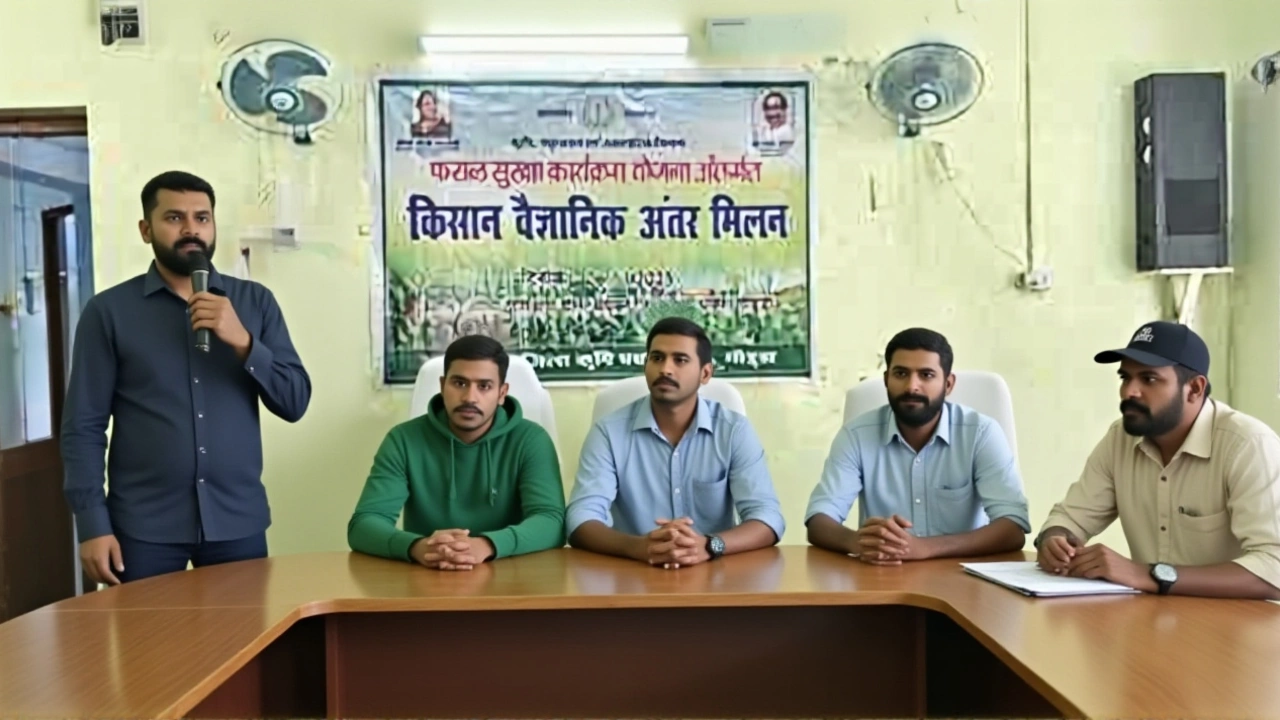Spain’s women’s team survived a penalty nightmare to book their place in the UEFA Women's Euro 2025 semifinals, beating host nation Switzerland 2-0 on Friday, July 18, 2025, at the Stade de Suisse Wankdorf in Bern. Despite missing two spot-kicks and enduring a grueling 60 minutes against a defiant Swiss defense, the reigning World Cup champions struck twice in a breathtaking five-minute window — and suddenly, the tension turned to triumph.
When the Penalties Missed, the Goals Came
It was a match defined by frustration, then flash. Spain, who had scored 14 goals in their three group-stage games, looked out of sync early. Mariona Caldentey was brought down in the box by Nadine Riesen — a clear penalty. But the kick, taken by Alexia Putellas, was saved by Livia Peng. Then, just before halftime, another chance: Salma Paralluelo was fouled again. This time, Aitana Bonmatí stepped up — and sent it wide. The crowd, swelling to 32,000 in Bern, held their breath. Was this going to be Spain’s undoing?Turns out, it was just the prelude.
Coach Jorge Vilda made a quiet but decisive change in the 62nd minute, sending on Athenea del Castillo, the 22-year-old forward with the icy composure. She replaced Caldentey. Four minutes later, Bonmatí played a delicate flick into the box. Del Castillo, arriving late, took one touch and slotted it past Peng — low, hard, and unerring. The stadium fell silent. Then, six minutes after that, it was chaos. Lia Walti lost possession under pressure from Patri Guijarro. Claudia Pina, another substitute, caught the ball 25 yards out. No hesitation. Right foot. Top corner. The net rippled. 2-0. The Spanish bench exploded.
The Return of Cata Coll and the Red Card That Sealed It
The match’s quiet hero? Goalkeeper Cata Coll (Catalina Coll Ripoll). Wearing jersey number 13, she returned from tonsillitis that had sidelined her for two matches. She didn’t have to make a single save in the first 70 minutes — not because Switzerland was toothless, but because Spain’s midfield, led by Irene Paredes and Laia Aleixandri, suffocated their rhythm. When Alayah Pilgrim did break free on the counter, Coll was ready. A fingertip save, calm as a Sunday morning.Switzerland, playing in their first-ever Women’s Euro quarter-final, had moments. Pia Sundhage’s side pressed high and looked dangerous on the break. But their final third precision vanished. And then, in the 90+2 minute, it all unraveled. Noelle Maritz, the Aston Villa defender, pulled down Salma Paralluelo just outside the box. No ambiguity. Red card. The Swiss players slumped. The Spanish players, exhausted but euphoric, embraced.

History Repeats — But This Time, It’s Different
Spain’s last quarter-final appearance? 1997. They lost to Italy — who now sit in the semis too. Since then, they’ve won a World Cup, lost a final, and rebuilt. Now, they’re one win away from their first Women’s Euro title. This team doesn’t just play football — they play with the weight of expectation. And yet, here’s the twist: they didn’t play beautifully. They played stubbornly. They missed penalties. They wasted 25 shots. But they scored when it mattered.It’s not about perfection. It’s about persistence.
Spain’s record against Switzerland? Seven wins in their last 11 meetings. That’s not luck. That’s dominance. But this time, it wasn’t about crushing them. It was about surviving them.

What’s Next? A Semifinal Against Giants
Spain now faces either France or Germany in the semifinals. Both are traditional powerhouses. Both have beaten Spain before. But Spain has changed. They’ve got Del Castillo’s poise, Pina’s long-range venom, and Coll’s calm between the posts. Bonmatí, now fully back from injury, is orchestrating like a maestro. Putellas, though quiet on the scoresheet, is everywhere.For Switzerland? It’s heartbreak. But they’ve already made history. Sundhage’s side showed grit. They held Spain at bay for over an hour. That’s no small feat.
And for Spain? They’re not just defending their World Cup crown. They’re chasing something bigger — a legacy. A first European title. And they’re doing it the hard way.
Frequently Asked Questions
Why did Spain miss two penalties, and did it affect their confidence?
Spain missed penalties from Alexia Putellas and Aitana Bonmatí — both highly reliable from the spot. The first miss came early, rattling the team’s rhythm. But unlike past tournaments where missed penalties led to collapse, this squad stayed composed. Coach Vilda didn’t change tactics; he trusted their discipline. The second miss, instead of breaking them, seemed to ignite their urgency. Del Castillo and Pina’s goals came within minutes of the second miss — proof the team channeled frustration into focus.
How significant is Cata Coll’s return from tonsillitis?
Cata Coll’s return was critical. She missed Spain’s final two group games due to illness, forcing backup goalkeeper Sandra Paños into action. While Paños performed well, Coll brings a different presence — better command of her area, quicker reactions, and more confidence in one-on-one situations. Against Switzerland’s counterattacks, her calmness under pressure prevented what could’ve been dangerous moments. Her return signals Spain’s full-strength lineup is finally intact for the knockout stage.
What does this result mean for Spain’s chances of winning Euro 2025?
Spain’s path just got tougher — but also more realistic. They’ve survived a physical, tactical test against a resilient opponent. Their attack remains potent, even if inefficient. With Del Castillo and Pina now scoring in key moments, and Bonmatí orchestrating, they have multiple weapons. Facing France or Germany will be a war, but Spain’s experience in high-stakes games — including their 2023 World Cup final win — gives them an edge in nerve. This isn’t just a team with talent; it’s a team that knows how to win when it matters most.
Why did Switzerland struggle to create clear chances despite the home advantage?
Switzerland’s midfield, led by Nadine Riesen and Lia Walti, was outmuscled and outmaneuvered by Spain’s pressing trio of Guijarro, Paredes, and Aleixandri. Spain’s high line forced Swiss defenders into rushed clearances. Alayah Pilgrim’s pace was their only real threat, but Spain’s fullbacks tracked her relentlessly. Switzerland lacked a true focal point up front — their striker, Mirlind Kryeziu, was isolated. Without a clinical finisher, even their best chances — like Pilgrim’s 68th-minute shot — were easily blocked or saved.
Is this Spain’s most impressive win in the tournament so far?
Statistically, no — they scored 14 goals in the group stage. But emotionally and tactically, this was their most impressive. They didn’t dominate possession cleanly. They didn’t convert chances efficiently. They were tested, frustrated, and still found a way. Against Switzerland, they showed resilience, not just skill. That’s the mark of a champion. Winning when you’re not at your best? That’s how legends are made.
What’s the historical significance of Spain reaching the semifinals again after 28 years?
Spain last reached the Women’s Euro semifinals in 1997, losing to Italy. Since then, the program was underfunded, overlooked, and rarely competitive. Their 2023 World Cup win was a seismic shift. Now, reaching the semis again — just two years later — proves it wasn’t a fluke. This is institutional growth. A generation of players raised on professional academies, with national support and media attention. Spain isn’t just winning; they’re building a dynasty. This run isn’t just about trophies — it’s about changing the future of women’s football in Spain.

